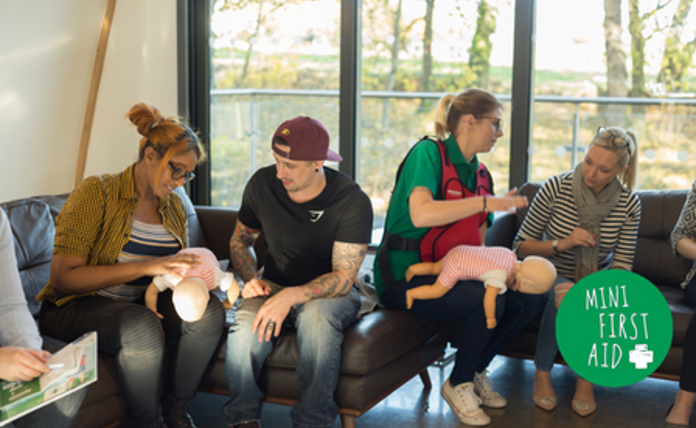How to Teach Your Teenager(s) About Budgeting

Gone are the days of dropping spare change into a piggy bank or heading to the bank to open your child’s first saving’s account. These days, financial education for teenagers and children alike looks a little different.
But while the tools have changed, the core lessons remain the same. Understanding money management is a fundamental life skill, and teaching it to a tech-savvy generation, one more familiar with tapping a card than counting coins, can feel like a challenge.
In this guide, we’ll cover how to help your teenager build good budgeting habits, set savings goals, and develop financial responsibility in today’s digital world.
Giving teenagers a bit of financial responsibility
The first step to financial independence is giving your teenager some responsibility, at whatever age you feel is appropriate. The goal is to help them understand the value of money early on.
To help them practice good money management, you could:
- Give them household jobs to earn an allowance.
- Encourage them to think about getting their first part-time job (when they’re old enough).
Get them involved in budgeting for the family’s weekly meals or upcoming holiday.
These small steps prepare them for managing their own finances as they prepare for turning 18.
Money management: A must-know skill for teens
As your child moves into their teenage years, they’re getting closer to adulthood, and with that comes financial responsibility. One of the most important lessons they can learn is simple: Don’t spend more than you have.
Budgeting tips for teenagers:
- Start a budget – Tracking their spending for a month helps them see where their money is going.
- Needs vs. wants – Teaching the difference between what they need and what they want is a crucial lesson.
- Avoid impulse buying – Encourage a “wait time” before any purchases. Do they still want it after a week?
- The 50 / 30 / 20 rule – This method helps divide their income into three categories: needs, wants, and savings.
- Time vs. money – Ask them, “Is this worth the time you spent earning the money to buy it?”
Boost your teen's money confidence: Saving made simple
- Start small and stay consistent – Whether they use a piggy bank or a savings account, saving even small amounts regularly makes a difference.
- Grow their savings – Look for an account that suits their needs, whether it’s a flexible cash savings account or a Stocks and Shares Junior ISA. With a Junior ISA, their money is locked away until they turn 18, helping them see the power of interest and long-term saving.
- Set savings goals – If they have a big purchase in mind, like a first car or a college course, help them plan how to save for it.
How parents can inspire smart spending and saving habits
Teenagers often learn by watching the adults around them. Talking openly about money can help them build a healthy relationship with it. Consider discussing topics like:
- How you budget – Show them how you prioritise expenses and set financial goals.
- How credit works – Explain responsible borrowing and the long-term impact of debt.
- The impact of interest rates – Help them understand how interest affects savings, loans, and credit cards.
- The value of saving – Share how you save for things like family holidays or emergency expenses.
- Comparing prices – Encourage them to look for the best value rather than just the cheapest option.
- Understanding tax – Explain how earnings are taxed and why they should plan for those deductions.
These conversations help teenagers develop smart financial habits that will benefit them in the long run.
The power of pocket money: A savings growth scenario
Let’s say a 17-year-old sets aside £40 from their part-time job each month, that’s £480 over a year. But what happens when they put it into an account with interest?
- Low growth (3.67% interest): After a year, their £480 grows to about £486.
- Medium growth (6.67% interest): With a better interest rate, their savings could reach £494.
- High growth (9.67% interest): If they invest in stocks and shares*, with higher potential growth their savings could grow to £502, while also learning about risk and long-term investing.
This scenario shows how even modest savings can grow over time. However, these figures are only examples and aren’t guaranteed, past performance is no indication of future performance.
*Capital at risk
Helping your teen take the first step toward financial independence
Thinking about setting up a savings account for your teenager? Consider how much flexibility you or they may need and what their goals are.
If you’d like guidance, our team is happy to help. Get in touch to discuss Junior ISAs* or Child’s Tax Exempt Savings Plan* and take the first step toward your teen’s financial future.
They may not be thinking about buying a house just yet, but by instilling smart money habits now, they’ll thank you later.
*Terms and Conditions apply
Important
The content in this blog is intended for general informational and educational purposes only and should not be considered advice.
We do our best to provide accurate and up-to-date information, but please keep in mind that rules, regulations, and product terms can change over time.
Additionally, details may vary between different providers or products, so the information shared here may not apply in every situation.
Need help?
Email us
Send us an email at insure@unitymutual.co.uk
Customer centre
Take a look at our customer centre

